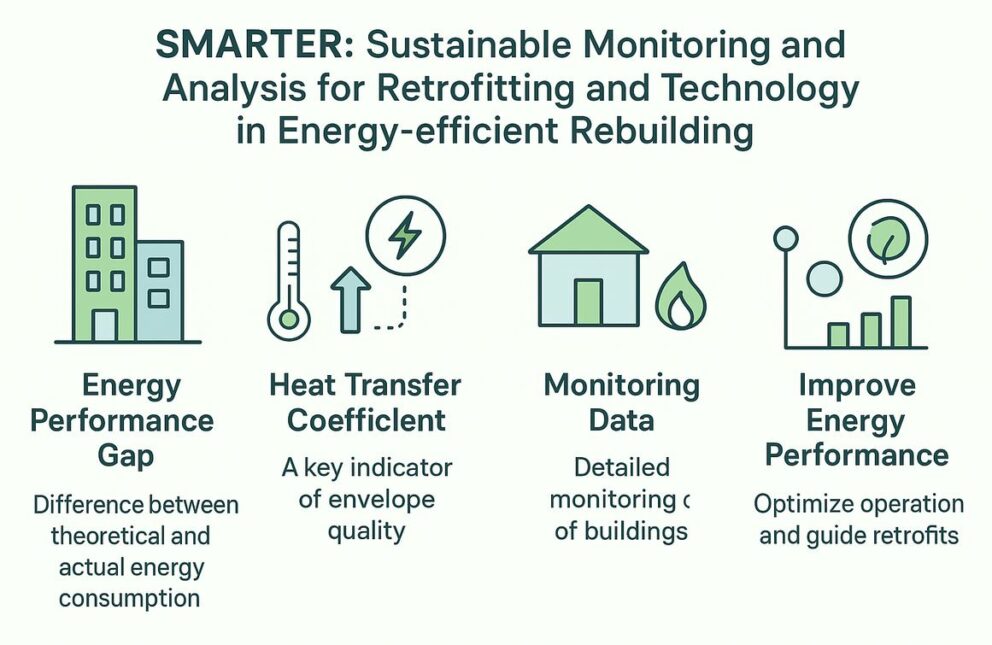This coordinated national project (PID-2024) between the GTE (University of Vigo) and ENEDI (UPV/EHU) groups seeks to improve the energy characterization of buildings based on real monitoring data, with the goal of understanding and reducing the “Energy Performance Gap” (EPG): the difference between theoretical and actual energy consumption. Reducing this gap is key to reducing energy expenditure and contributing to mitigating climate change.
One of the most influential factors in the EPG is the quality of the building envelope, which is assessed using the Heat Transfer Coefficient (HTC). Traditionally, this parameter is obtained through the Co-Heating test, which requires vacating the building for weeks during the winter. The project proposes developing new techniques that allow the HTC to be calculated without interrupting the use of the building and, in addition, can also be applied during cooling periods.
The initiative builds on the experience of two previous projects: SMARTHERM, focused on detailed energy models for renovation, and DEEPSMART (https://deepsmart.webs.uvigo.es/), which used artificial intelligence to optimize control strategies. Now, the new project aims to leverage detailed monitoring data to:
- Determine the HTC in buildings in use.
- Reduce energy consumption by optimizing their operation based on the actual quality of the building envelope.
- Guide sustainable renovation strategies by prioritizing actions based on the HTC.
Within this framework, the ROMEEU subproject, led by ENEDI, will focus on two main tasks: maintaining and analyzing a comprehensive monitoring database of residential and tertiary buildings, and developing analytical methods to obtain the HTC from this data. It will also develop guides to facilitate the standardization of the process.

